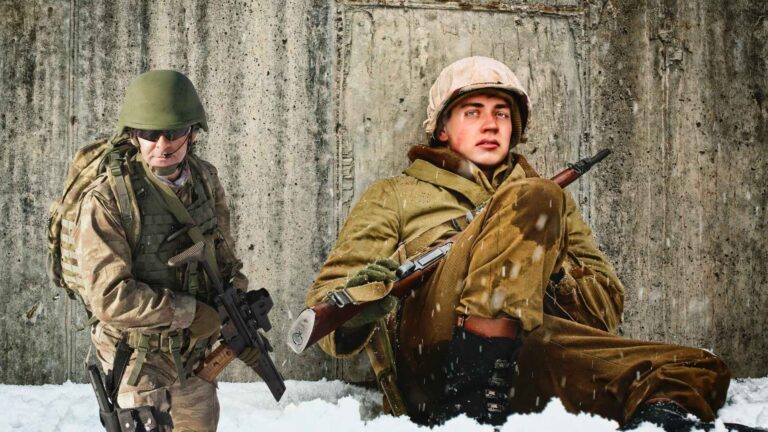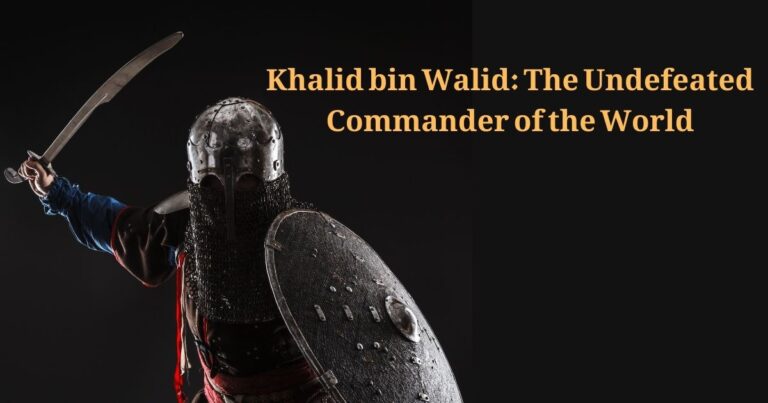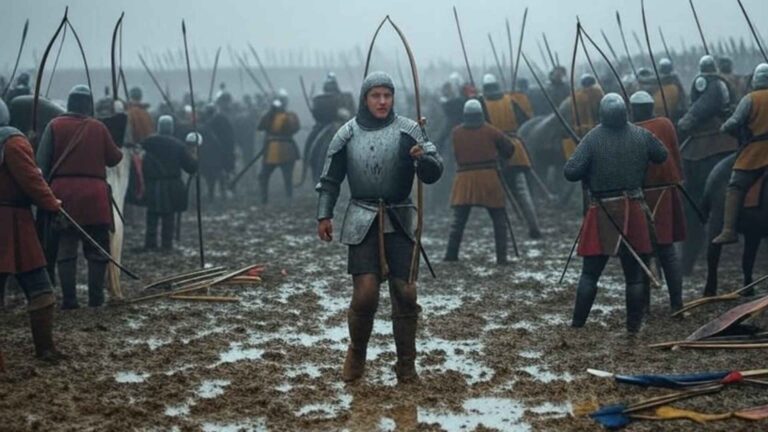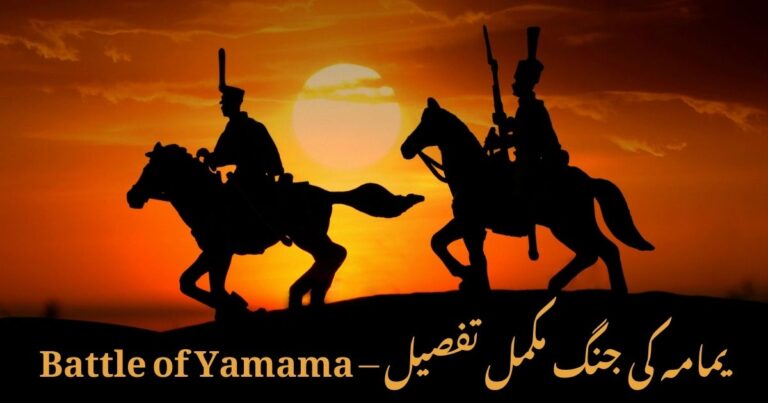The Battle of Karbala: A Tragedy That Changed Islamic History Forever
The Battle of Karbala, fought on the 10th of Muharram, 61 AH, is one of the most significant and heart-wrenching events in Islamic history. It marked the martyrdom of Imam Hussain ibn Ali (RA)—the beloved grandson of Prophet Muhammad (ﷺ)—at the hands of the forces of Yazeed bin Muawiyah, the Umayyad caliph.
This battle took place in Karbala, Iraq, and remains a symbol of the eternal struggle between truth (Haqq) and falsehood (Batil). For Muslims across the globe, Karbala is not just a historical event—it is a timeless lesson in courage, sacrifice, and standing against tyranny.
Must Read: Battle of the Bulge: Causes, Casualties, Significance, and Who Won
Background: From Caliph Muawiyah to Yazeed
When Muawiyah (RA) passed away in 60 AH, his son Yazeed took over as caliph. However, his rule was controversial. Many prominent companions of the Prophet (ﷺ) and early Muslims rejected Yazeed’s legitimacy, citing his corrupt lifestyle and un-Islamic behavior.
Imam Husayn refused, stating that:
“A person like me can never pledge allegiance to a person like him.”
Notable Opposition to Yazeed:
- Imam Hussain (RA)
- Abdullah ibn Zubair (RA)
Those Who Warned Against Revolt:
- Abdullah ibn Umar (RA)
- Abdullah ibn Abbas (RA)
These companions didn’t support Yazeed but feared the bloodshed that would result from rebellion.

Must Read: The Battle of Agincourt: How 6,000 Englishmen Crushed a French Army of 30,000
The Letters from Kufa and Hussain’s Journey
Kufa (in Iraq) was a politically unstable region, but many of its citizens saw Imam Hussain (RA) as the rightful leader of the Ummah. They wrote hundreds of letters inviting him to come and take leadership against Yazeed.
Imam Hussain (RA), who was in Makkah, sent his cousin Muslim ibn Aqeel to investigate. Muslim reported that the people of Kufa were ready to support Hussain.
Despite warnings from scholars like Ibn Abbas (RA), Imam Hussain decided to depart for Kufa with his family and close companions, trusting the pledges he had received.
Must Read: Battle of Stalingrad: Casualties, Importance, Why Happened and Who Won
Betrayal in Kufa and Isolation in Karbala
Before Imam Hussain could reach Kufa:
- Yazeed replaced the governor of Kufa and appointed Ubaidullah ibn Ziyad, instructing him to suppress any dissent.
- Muslim ibn Aqeel was executed, and the people of Kufa abandoned Hussain out of fear.
Imam Hussain and his small caravan were intercepted and forced to camp at Karbala by Yazeed’s army. They were denied water and surrounded.
Despite showing them the letters from the Kufans, the soldiers refused to acknowledge their pledges.

Must Read: What Can Be Used Against You In a Custody Case?
The Night Before Ashura
On the night before the 10th of Muharram (Ashura), Imam Hussain:
- Requested one night’s delay to worship Allah.
- Spent the night in Qur’an recitation, Salah, and Du’a.
- Told his sister Zainab (RA) not to mourn after his death, as martyrdom was an honor.
He also saw his grandfather, Prophet Muhammad (ﷺ) in a dream, assuring him of his martyrdom and reward.
The Day of Ashura
On the morning of Ashura, Imam Hussain’s small group—about 100 men, including family members—stood against an army of 4,000+ soldiers.
Key Events:
- Hussain’s companions bravely fought and were killed one by one.
- Hussain (RA), extremely thirsty and wounded, was shot with an arrow.
- He was eventually ambushed by multiple soldiers, and Shimr ibn Dhil-Jawshan struck the fatal blow.
His head was severed and sent to the governor of Kufa. The rest of the family was taken as captives.
“Inna lillahi wa inna ilayhi raji’oon. Verily to Allah we belong, and to Him we shall return.”
Must Read: Oldest Religions in the World- A Comprehensive and Detailed Overview
The Patience of Ahle Bayt and the Captivity
Imam Zainul Abideen, Hussain’s son, was ill and survived. His aunt, Zainab (RA), protected him during the attack on the tents.
The women and children were captured and taken to Kufa and then to Yazeed in Damascus. Some narrations suggest that Yazeed showed remorse, but the extent of his sincerity is debated.
Aftermath and Divine Retribution
- Ubaidullah ibn Ziyad, the man responsible for executing Muslim ibn Aqeel and ordering the attack on Hussain, was killed six years later—on the same day of Ashura.
- His severed head was also brought before Mukhtar al-Thaqafi.
- Strange occurrences were reported: darkened skies, blood appearing beneath stones, and the heavens trembling at the martyrdom.
Imam Shafi’ee (رحمه الله) wrote:
“Slaughtered for no reason. His shirt was dyed red with blood.
The world shook for the family of Muhammad.
The mountains were close to melting…
How strange it is that people send blessings upon the Prophet but kill his children.”
Lessons from The Battle of Karbala
| Lesson | Meaning |
|---|---|
| Truth over Falsehood | Always stand for truth even if it costs everything. |
| Beware of Betrayal | Never make promises you won’t keep, especially in matters of life and leadership. |
| Patience in Trials | Imam Hussain and his family showed immense patience even in the face of death. |
| Avoid Innovation (Bid’ah) | Dramatized and exaggerated forms of mourning have no place in Islamic tradition. |
| Seek Unity, Not Division | Karbala should unite the Ummah in purpose, not divide it along sectarian lines. |
Conclusion: Karbala Is Not Just History—It’s a Living Lesson
The Battle of Karbala is not merely a historical event—it’s a moral compass for every believer. Imam Hussain (RA) stood not for power or revenge, but for justice, truth, and the legacy of Islam.
As we remember this tragedy, let us learn from it, rather than engage in rituals that contradict the very message of Imam Hussain’s sacrifice. The Ummah must rise above division, hold fast to Qur’an and Sunnah, and strive to uphold the Haqq (truth) in every aspect of life.
FAQs
Who became Caliph after the assassination of Hazrat Usman (RA)?
After Uthman’s assassination in 656 CE, Hazrat Ali ibn Abi Talib (a.s.), cousin and son-in-law of Prophet Muhammad (ﷺ), was chosen as the fourth Caliph.
Why did Mu’awiya oppose Imam Ali’s caliphate?
Mu’awiya, governor of Syria and relative of Usman, refused to swear allegiance to Imam Ali. He demanded justice for Usman’s killers and raised rebellion against Imam Ali’s rule.
What was the Battle of Siffin?
The Battle of Siffin (657 CE) was a major military confrontation between Imam Ali’s and Mu’awiya’s armies. Around 70,000 Muslims were killed — 45,000 from Mu’awiya’s side and 25,000 from Imam ‘Ali’s.
Was there any betrayal during the Battle of Siffin?
Yes. Amr ibn al-As, an ally of Mu’awiya, conspired with some disloyal generals inside Ali’s camp, weakening Imam Ali’s position.
What happened when the battle reached a stalemate?
Mu’awiya’s forces raised copies of the Quran on their spears, calling for arbitration based on the Quran. Some of Imam Ali’s generals agreed to stop fighting, against his wishes.
How did the arbitration process unfold?
Arbitration was manipulated by Mu’awiya’s negotiator Amr ibn al-As. Imam Ali’s representative Abu Musa al-Ash’ari was inexperienced and was outmaneuvered, leading to political loss for Ali.
What were the consequences of the arbitration?
The unfair arbitration shocked Imam Ali’s supporters and led to the formation of the Kharijites, an extremist group who rejected both sides and later assassinated Imam Ali.
How did Imam Ali (a.s.) die?
In 661 CE, Imam Ali was assassinated by a Kharijite named Ibn Muljim while praying in the mosque of Kufa.
What was the peace treaty between Imam Hasan and Mu’awiya?
To avoid bloodshed, Imam Hasan made a treaty with Mu’awiya that included: amnesty for people, protection for Ali’s family and followers, Mu’awiya stopping public curses against Ali, and no appointment of successor by Mu’awiya.







